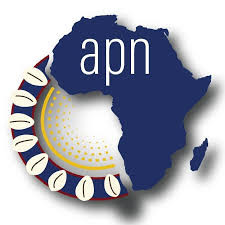
The framing of African philanthropy has to shift from the traditionally institution based forms of interventions to more organic, social movements driven ways of engagement.
Whereas African philanthropy has been driven by relatively linear ways of engaging the targeted beneficiaries, the digital age provides an opportunity for a two way approach of designing and implementation of development projects.
Philanthropy in the region should take cognizance of the changes in society as a result of technological developments that should broaden the scope of philanthropic interventions.
The clarion calls for shifting mindsets in how philanthropic interventions are implemented were affirmed by the 250+ delegates from over 20 countries that converged for the African Philanthropy Network (APN) Assembly that took place in Zimbabwe's tourism hub, the Victoria Falls between November 4 to 8 2024.
The APN Assembly is a bi-annual convection of stakeholders in the philanthropic, developmental and civic society sectors as a platform to reflect on contemporary developments in the African region and how philanthropy can be best positioned in steering the development agenda.
This year's edition of the APN Assembly ran under the theme collective freedom from collective struggles with the key deliberations of examining the relationship between philanthropy policy and practice.
Central to the reflections at this year's meeting were on African philanthropy's potential to drive systemic change and to examine how actors could work together to celebrate and own indigenous practices as distinctly African and thus relevant to reshaping future philanthropy, as well as reimagining practices for contemporary application.
The ideas of reimagining philanthropy are anchored on the changes in society and how traditional strategies of organizing support for various causes are changing.
- ZLHR pushes for PVOs Bill abolishment
- Mudenda rejects opposition legislators’ PVOs Bill plea
- Village Rhapsody: Zanu PF must revisit its ruinous stance on NGOs
- PVOs Bill will worsen poverty: ZDI
Keep Reading
Whereas in the past, philanthropy used to take a top down approach in which the needs of the beneficiaries were defined in the lenses of the global north, the circumstances of what is obtaining in contemporary times require a more nuanced approach in which beneficiaries of philanthropy can dictate the support they need.
Technology has transformed the world into a global village, with interconnected struggles that compel coordinated philanthropy and coalition building.
As shared in the reflections by this year's summit key note speaker, Nicholas Moyo Secretary in the Ministry of Arts, Sports and Culture, the challenges that confront Africa are intertwined to the extent that the agenda cannot be defined by singular actors.
"Our challenges - be they economic inequalities, social injustices, or environmental concerns are interconnected. We must work together to confront these issues head-on, prioritizing the most vulnerable among us."
"In achieving this, you require enabling policies and operating environments that the African governments are committed to provide through the implementation of the Agenda 263," he said.
The question of enabling policies was central to the Assembly dialogues on at least three fronts.
Firstly, policies were discussed in the context of existing legal frameworks that are not being implemented. Progressive policies that support philanthropic work for persons with disabilities for instance, were among those discussed.
The Assembly recommended that stakeholders need to take an audit of these policies and ensure that their implementation.
On the other hand there are gaps in policies and legislation that need to be put in place for philanthropy in Africa to thrive. The gaps could be the absence of support mechanisms by the government or lack of adequate legislation to protect children, for example.
Then there is the question of policies and legislation that threaten the existence of philanthropic institutions through the imposition of restrictive measures.
Some countries on the African continent have restrictive NGO laws that limit the capacity of philanthropic institutions to operate and organize.
In these states, philanthropic work is viewed with suspicion and instead of being perceived as government partners for development, they are viewed as enemies of the state.
It is in the context of these dialogues that the law that governs Private Voluntary Organisations (PVOs) in Zimbabwe was discussed as restrictive and should the law be passed, some civic society organizations will face imminent closure.
The Assembly urged consistent dialogue, advocacy and engagement to ensure such restrictive measures against civic society are reviewed.
Beyond the policy framework, the Assembly discussed the need to further strengthen the indigenous knowledge systems and for philanthropic work to be packaged in a way that will sustain the interventions beyond projects support.
Africa has under utilised the knowledge systems and in the process the framing and identity of philanthropic interventions have been lost in the narratives of the global north.
This challenge has been noted as being worsened by the lack of coordination between philanthropy and civic society actors, the media and artists. The media and artists can help in packaging knowledge and in information dissemination.
Collaborations among these actors was one of the key resolutions of the Assembly and a media strategy for awareness raising is going to be instrumental in ensuring wider audiences are reached and organic civic society voices are amplified.
This was a point emphasized by prominent Zimbabwean poet Chirikure Chirikure who noted that there's scope for artists and the philanthropic sector to forge partnerships that amplify developmental messages.
"Artists need to be equipped to understand philanthropic works beyond just being commissioned to do one or two songs or to produce artistic works that are not sustainable."
"Philanthropy institutions need to include the media and artists in the formulation of their programs such that art practitioners can mainstream development work as part of their craft," he said.
What was indeed evident from the rich deliberations of the week-long Assembly was the imperative need to use new media technologies in coalition building and strengthening partnerships and collaborations.
African philanthropy can harness the potential of the skills among the growing population and the popular urban culture for it to be contextually relevant.
The evidence that African philanthropy is alive was overwhelming at the APN Assembly. Yet there is scope to reimagine African philanthropy through harnessing the potential of social movements that are finding expression online.
- Tarisai Jangara and Nigel Nyamutumbu are development communications experts who were among the delegates at the 2024 APN Assembly in Victoria Falls.










